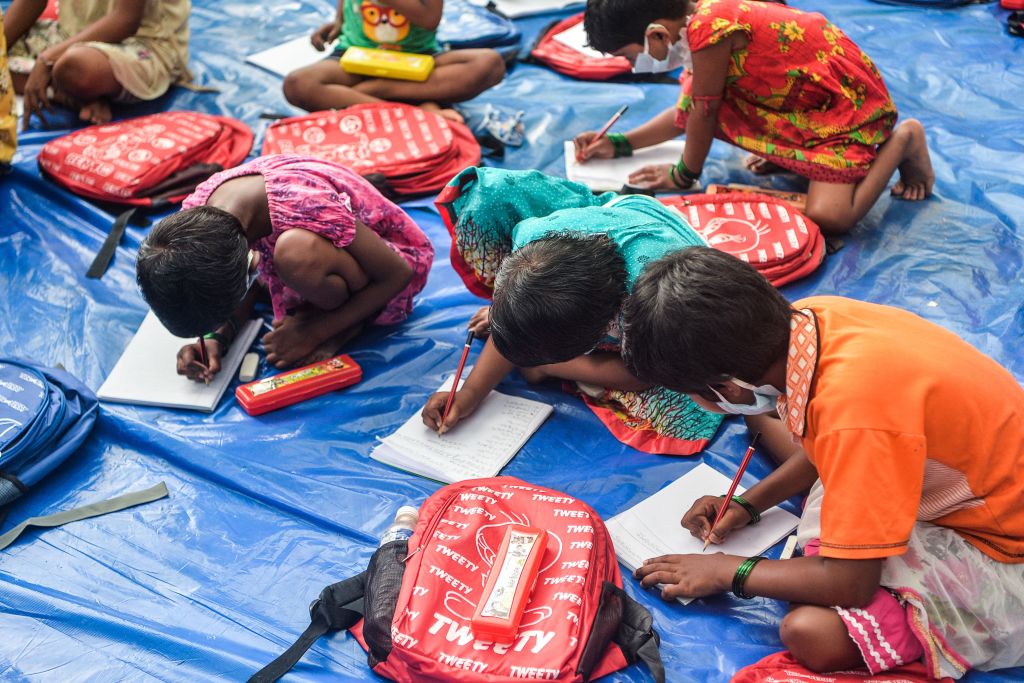- Thursday, February 27, 2025

By: Shubham Ghosh
INDIAN billionaires saw their combined fortunes more than double during the Covid-19 pandemic and their count shot up by 39 per cent to 142 and if a new study from Oxfam is to be believed, the wealth of the 10 richest people in India is adequate to fund school and higher education of children in the country for 25 years.
In its annual inequality survey released on the inaugural day of the World Economic Forum’s online Davos Agenda summit, Oxfam India also said that an additional one per cent tax on the richest 10 per cent can equip the country with more than 17 lakh (1.7 million) extra oxygen cylinders while a similar wealth tax on the 98 richest billionaire families would finance Ayushman Bharat, the world’s biggest health welfare scheme for more than seven years.
ALSO READ: Covid created 20 ‘pandemic billionaires’ in Asia: Oxfam
The Covid-19 pandemic saw a big rush for oxygen cylinders and insurance claims during the devastating second wave last year.
On wealth inequality, the Oxfam report also said that 142 Indian billionaires collectively own wealth worth more than rupees 53 lakh crore (£522 billion) and the richest 98 of them have the same wealth as the poorest 55.5 crore people in the bottom 40 per cent (nearly rupees 49 lakh crore or £483 billion).
If each of the 10 richest Indian billionaires were to spend $1 million (£732,550) a day, it would take them 84 years to exhaust their current wealth, while an annual wealth tax applied to multi-millionaires and billionaires would raise $78.3 billion (£57.3 billion) a year that would be sufficient to raise the government health budget by a whopping 271 per cent or eliminate households’ out-of-pocket health budget and leave some $30.5 billion (£22.3 billion).
Stressing that Covid-19 may have begun as a health crisis but has become an economic one now, Oxfam said the wealthiest 10 per cent have amassed 45 per cent of the national wealth while the share of the bottom 50 per cent of the population is only six per cent.
It further said the inadequate governmental expenditure on health, education and social security has gone hand-in-hand with a rise in the privatisation of health and education, making a full and secure Covid-19 recovery out of reach for the common citizen.
The study also urged the government to revisit its primary sources of revenue generation, adopting more progressive methods of taxation and assessing its structural issues that permit such wealth accumulation by the rich.
Additionally, the government should also redirect revenue towards health, education and social security, treating them as universal rights and as a means of reducing inequality, Oxfam said.
“We call upon the government to redistribute India’s wealth from the super-rich to generate resources for the majority by reintroducing the wealth tax and to generate revenue to invest in the education and health of future generations by imposing a temporary one per cent surcharge on the rich for health and education,” it said.
On gender inequality, Oxfam India said women accounted for 28 per cent of all job losses and lost two-thirds of their income during the pandemic.
India’s 2021 budget allocation for the Ministry of Women and Child Development is less than half of the total accumulated wealth of the bottom ten of India’s billionaire list, the report noted. A two per cent tax on individuals with an income of more than Rs 100 million could increase the ministry’s budget by 121 per cent, it added.
On health inequality, the report said a four per cent wealth tax on the 98 richest families in India would finance the ministry of health and family welfare for more than two years and noted that their combined wealth is 41 per cent more than the Union budget of India.
And on education inequality, the study said a one per cent of tax on wealth of the 98 billionaires in India can fund the total annual expenditure of the department of school education and literacy under the education ministry.
Similarly, a four per cent tax on the wealth of the 98 billionaires would be enough to fund the Mission POSHAN 2.0, which includes anganwadi services, POSHAN Abhiyan, scheme for adolescent girls, and National Creche Scheme, for 10 years.
(With PTI inputs)